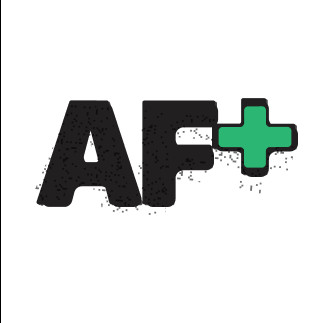Last month, a playful Snapchat filter swept across the cisgender internet, offering a fleeting glimpse into alternate gender presentations. This digital dabble in gender fluidity, while lighthearted for some, inadvertently sparked deeper reflections for others, perhaps even nudging some towards life-altering self-discovery.
Concurrently, I embarked on a personal quest to unravel a question that has lingered since I navigated the terrain of transgender singlehood: Why is Q Lazzarus’s “Goodbye Horses” such a prevalent anthem on dating apps? This distinctive 80s track, famously known from The Silence of the Lambs Buffalo Bill scene, seems an unlikely choice for a dating profile. Since reactivating my Tinder profile in January, I’ve encountered numerous profiles weekly featuring this song. This frequency rivals only “Make Me Feel” and “Pussy is God,” selections more conventionally expected within queer women’s online spaces, unlike a song indelibly linked to a cinematic serial killer.
My initial attempts to understand this phenomenon through direct inquiries were met with silence. My messages to two matches who featured the song went unanswered. (Yes, attraction overruled curiosity, and I swiped right). Queries on Twitter, Instagram, and within the Autostraddle Slack channel also yielded no insights. I began to question if I was overthinking things. Perhaps it was just a popular song, devoid of any deeper Buffalo Bill connotations for most users. To gauge public sentiment, a simple Twitter search for “Goodbye Horses” revealed a stream of posts, predominantly featuring cisgender men utilizing the gender-swap Snapchat filter, alongside the predictable caption: “Siri, play Goodbye Horses.”
One of the persistent challenges of being transgender is witnessing the often-unintended pity in cisgender reactions when sharing personal experiences. So, to my cisgender audience, a gentle heads-up: what follows might evoke that familiar expression.
For the initial year of my transition, Buffalo Bill was a recurring figure in my self-perception.
The Silence of the Lambs holds a significant place in the cultural consciousness, particularly for many cisgender women. While some may express a slightly embarrassed fondness for the film when speaking with me, there’s no need for apology. It’s undeniably a cinematic masterpiece – perhaps even perfect. Its profound impact on me stemmed precisely from its excellence. Mediocre transphobic films evoke anger, but they lack the insidious power to burrow into one’s psyche like a death’s-head moth. Such deep impact requires a film of exceptional quality.
A member of the exclusive “Big Five” Oscar winners (Best Picture, Best Director, Best Actor, Best Actress, and Best Screenplay), Jonathan Demme’s 1991 film was groundbreaking. A prestige detective thriller with a female lead was already notable, but one explicitly addressing misogyny, devoid of a romantic subplot, and featuring a gay female protagonist was unprecedented.
Upon its release, The Silence of the Lambs faced protests from cisgender gay men who interpreted Buffalo Bill as a gay male character. However, Buffalo Bill is unequivocally a trans woman, and this trans identity is crucial to the film’s brilliance.
Buffalo Bill and Hannibal Lecter embody the dual fears projected by TERFs (trans-exclusionary radical feminists). Hannibal represents the patriarchal figure, the violent, masculine authority whose approval is mistakenly sought. His boundless power epitomizes patriarchy. Bill, conversely, is the perceived infiltrator, a man allegedly appropriating femininity to encroach upon womanhood. While Hannibal is the overtly menacing figure, Bill is portrayed as the more insidious threat, a danger specifically to cisgender women. The film’s transphobia is not accidental; it’s thematically central, executed with chilling effectiveness. This is why Buffalo Bill’s demise provides a sense of resolution, even as Hannibal escapes. This sentiment resonates deeply with “liberal” TERFs who find common ground on platforms like Fox News.
The film’s portrayal falters in its understanding of trans identity, mistakenly equating “man sneaking into womanhood” transphobia with transsexual individuals. Ironically, the movie explicitly denies Bill’s trans identity. Clarice, in a somewhat comical line, asserts, “There’s no correlation in literature between transsexualism and violence. Transsexuals are very passive…”
Hannibal counters, “Billy is not a real transsexual.”
He attributes Bill’s gender dysphoria to childhood abuse, distinguishing it from “true transsexualism.” He claims Bill was likely denied gender-affirming surgery at multiple clinics. It’s worth noting that in 1991, being non-heterosexual could have been grounds for denying medical transition. Harry Benjamin’s gender orientation scale controversially linked gender and sexuality, a view held by some medical professionals into the 90s. Furthermore, the assertion that trauma negates trans identity is baseless. Transgender individuals experience child abuse at a higher rate than their cisgender counterparts.
This discourse can quickly become weighty, which is why I hesitated when a cisgender woman at a gathering cited The Silence of the Lambs as her inspiration for becoming an actress. I couldn’t help but wonder about the extent to which she had internalized the film’s problematic elements, if a subconscious unease towards me existed within her. However, I remained silent, suppressing these thoughts and praising the film’s artistic merits.
Later, a more pointed comment pierced through my composure. A lesbian declared her categorical refusal to engage sexually with anyone possessing a penis. Fair enough, perhaps some prefer partners who aren’t passive serial killers.
Before my own experience with singlehood, I was critical of trans women who voiced dating frustrations on social media, particularly trans lesbians. I often encountered sentiments about cis lesbians’ supposed lack of interest and the expectation that true allyship required cis lesbians to engage sexually with trans women. I found this perspective deeply unsettling.
Dating is universally challenging, I reasoned. Attributing dating difficulties to trans identity is self-pitying and diminishes our dignity. Publicly expressing such sentiments undermines our pursuit of respect and equality. Nothing is less appealing than self-pity. I would internally judge these expressions while securely nestled with my partner of three years, pre-transition.
This viewpoint was, of course, flawed. An entire community cannot collectively adopt a “playing hard to get” strategy. These trans women weren’t obligated to project unwavering confidence in late-night online posts. They shouldn’t have to perform for an imagined cisgender audience, especially when that audience wasn’t waiting with bated breath to determine trans women’s datability based on social media updates.
My earlier reaction was partly fueled by a TERF talking point that falsely accuses trans women of feeling entitled to sex with cisgender women. It’s easy to internalize such narratives and overcompensate with a counter-narrative that goes too far in the opposite direction. I had previously refused to acknowledge my trans identity as a potential dating obstacle. I naively categorized the cisgender dating pool into two simplistic groups: a small minority who wouldn’t date trans women and the majority who were ostensibly open to it. The reality, predictably, is far more nuanced.
This topic remains uncomfortable for me. While I no longer judge other trans women for expressing these dating anxieties, I still grapple with my own feelings. Dating is inherently complex. Rejection is multifaceted, and attributing every instance to one’s trans identity is reductive and inaccurate. However, what is one to think when a promising connection, after an evening of flirtation, reveals they have only dated cisgender women but are now “considering opening that up to trans women”? When the night concludes without a kiss, how does one discern if it’s personal incompatibility or a hesitation to embark on a perceived “adventurous” encounter? This scenario is not uncommon.
In my initial months navigating the dating scene, I engaged in a form of self-deception. While not concealing my trans identity, I steadfastly refused to acknowledge its potential influence on others’ interest in me. I believed that by denying its relevance, I could somehow manifest that denial into reality. I aspired to enter queer spaces radiating confidence and desirability, free from any perceived stigma. I didn’t want my transness to be an immediately off-putting label.
There’s merit in the “fake it till you make it” adage. Confidence is undeniably attractive. However, living in complete denial is unsustainable. Sometimes, reality would intrude abruptly, like encountering someone at a party launching into a monologue about penises. Other times, it was more subtle, a persistent undercurrent of difference I resisted acknowledging. This subtle reminder surfaced every time I encountered a dating profile featuring “Goodbye Horses” as their anthem.
The scene begins with a close-up of discarded food containers. Catherine, the senator’s daughter held captive by Buffalo Bill in a well, murmurs to herself. She attaches a bone to a string and looks upwards. The faint strains of the song begin to play.
We transition to Bill’s tattooed hand applying eyebrow filler with a makeup brush. Then back to Catherine, who throws the bone up to Bill’s dog, Precious. As the ooo’s of the song crescendo, Bill is revealed wearing the face portion of a skin suit – her macabre method of “becoming a woman.”
The scene alternates between Catherine’s desperate attempts to lure Precious for leverage and Bill’s meticulous preparations. Bill applies lipstick in an extreme close-up of her mouth, uttering the now-iconic lines, “Would you fuck me? I’d fuck me. I’d fuck me so hard.”
As the scene concludes, the camera pulls back to reveal a fully made-up Bill for the first time. The scalp wig is remarkably convincing. Her hairless body is draped in a shawl, which she manipulates flirtatiously as she dances. She gazes directly into the camera – we are her mirror. She steps back for a full-body shot, opening the shawl like moth wings, revealing her tucked penis – a deliberately grotesque presentation of a trans body, imbued with a perverse sense of pride.
“Won’t you listen to me/ Good-bye horses I’m flying over you/ Good-bye horses I’m flying over you”
The enduring appeal of this song as a dating app anthem remains a puzzle. I may never fully decipher it.
When I initially messaged the “Goodbye Horses” enthusiasts, one responded, “that buffalo bill scene is classic,” while the other simply stated, “I LOVE the song.” Both subsequently ghosted. Perhaps it’s intended as ironic humor, a touch of edginess. They likely aren’t consciously associating Buffalo Bill with a trans woman, simply choosing a song linked to a notorious serial killer. Or, conceivably, some genuinely just appreciate the song.
I remain curious as to why this phenomenon seems to resonate primarily with me. It undoubtedly stands out to me in ways it wouldn’t to cisgender individuals, and perhaps even more acutely than to other trans women. Early in my transition, I immersed myself in all forms of trans media, both positive and negative. As a substitute for journaling, I began writing critiques. In retrospect, it was an attempt to exert control, a motivation that persists.
Similar to my approach to dating, I believed that by engaging with media with a defined purpose, transphobia would lose its power to affect me. But it did. And I was actively seeking it out. The Silence of the Lambs was re-released by Criterion shortly after I began my transition. I not only rewatched the film but also dedicated three additional hours to its special features. It was an undeniably bleak day.
Buffalo Bill’s body was the first onscreen representation of a trans body I ever encountered. It remains one of the few. The impact of that scene was inevitable. Buffalo Bill was an unavoidable point of reference when confronting my own pre-medical-transition body. Of course.
I resist being affected by transphobia. I dislike appearing vulnerable or weak. Cisgender individuals frequently dismiss transphobic remarks, actions, and characters as “not a big deal.” A part of me wants to believe them, to embody the “tranny who doesn’t care about the word tranny.” It often feels as if my acceptance as a fully realized human hinges on this perceived indifference. In reality, the opposite is true.
No further insights were forthcoming from my “Goodbye Horses” Tinder matches. And none were needed. Their responses couldn’t validate or invalidate the complex feelings the song still evokes in me. There was only one conclusive action left. I deleted Tinder from my phone.
And promptly joined Bumble.

Alt Text: Support queer media – Autostraddle AF+ Membership banner encouraging readers to join and support independent queer journalism.


